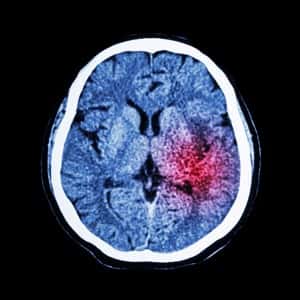
Researchers report counter-intuitive results from a trial on treating hemorrhagic (bleeding) strokes. Usually strokes caused by clots are treated with drugs that can break up clots; strokes caused by bleeding in the brain are not treated with those medications because they could make the situation much worse. While hemorrhagic strokes are less common than ischemic strokes, they are often more devastating.
What This Unusual Study Did:
The phase 3 trial tested the use of alteplase, also known as tPA, a clot-dissolving compound. It was administered to patients with bleeding into the ventricles of the brain. These ventricles normally contain cerebrospinal fluid.
Getting tPA directly into the ventricles in a timely manner reduced death rates by 10 percent and reduced the disability of survivors. In this study the tPA was delivered to the brain ventricles through catheters that had to be placed very carefully so the drug would reach the right part of the brain.
How Soon Will This Treatment Save More Lives?
What makes this surprising is that clinicians have carefully avoided giving tPA or other clot busters to people suffering hemorrhagic stroke for fear of making the bleeding worse. Now that protocol may need to be reevaluated.
Because this was a very specific sub-type of stroke, and because the placement of the catheter requires sophisticated imaging and experienced clinicians, this treatment is not likely to be adopted in local hospitals around the country any time soon. Hopefully, however, it will stimulate additional research that will help people suffering from bleeding in the brain.
International Stroke Conference, Los Angeles, 2016

